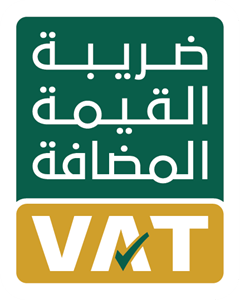Final assessments are a significant milestone in any academic journey, representing the culmination of your hard work and dedication throughout the course. Whether it’s an exam, project, or presentation, the pressure can be overwhelming. However, with the right preparation and mindset, you can navigate your final assessment with confidence and ease. This blog will explore essential strategies to help you succeed in your final evaluations.
1. Understand the Assessment Format
Before diving into study materials, take some time to understand the format of your final assessment. Here are some key points to consider:
- Type of Assessment: Determine whether it’s a written exam, presentation, or project submission. Each format requires different preparation strategies.
- Assessment Criteria: Familiarize yourself with the grading rubric or criteria. Understanding what your instructors are looking for can help you focus your efforts.
- Time Allocation: Know the duration of the assessment and how much time you’ll have for each section. This knowledge will guide your study sessions and practice.
2. Create a Study Plan
A well-structured study plan is crucial for effective preparation. Here’s how to create one:
- Set Clear Goals: Break down your study material into manageable sections, setting specific goals for each study session. For example, aim to cover one chapter or topic per session.
- Allocate Time Wisely: Consider how much time you have before the assessment and allocate study time accordingly. Be sure to include breaks to avoid burnout.
- Prioritize Difficult Topics: Focus on challenging subjects first, as they may require more time and attention. This approach will give you a head start and boost your confidence.
3. Utilize Effective Study Techniques
Different study techniques work for different individuals. Here are some proven methods to enhance your learning:
- Active Recall: Test yourself on the material regularly instead of passively reading. This technique helps reinforce memory and identify areas that need further review.
- Spaced Repetition: Space out your study sessions over time. This method helps improve retention and recall, making it more effective than cramming.
- Practice Exams: Take practice tests under timed conditions to simulate the assessment environment. This practice can help you manage time and reduce anxiety on the actual day.
4. Collaborate with Peers
Studying with classmates can enhance your understanding of the material. Here are some collaborative strategies:
- Study Groups: Form a study group with peers to discuss topics, quiz each other, and share insights. This interaction can deepen your comprehension and provide different perspectives.
- Teach Each Other: Explaining concepts to others helps solidify your understanding. If you can teach it, you know it well.
- Share Resources: Exchange study materials, notes, and resources with classmates to broaden your learning materials.
5. Manage Stress and Anxiety
Final assessments can be stressful, but managing anxiety is crucial for optimal performance. Consider these strategies:
- Mindfulness and Relaxation Techniques: Practice mindfulness, meditation, or deep-breathing exercises to calm your mind and reduce stress levels.
- Stay Organized: Keep your study materials and schedule organized to minimize last-minute panic. Being prepared can significantly reduce anxiety.
- Positive Self-Talk: Replace negative thoughts with positive affirmations. Remind yourself of your preparation and capability as you approach the assessment.
6. Take Care of Your Well-Being
Your physical and mental well-being is essential during this time. Here are some tips to maintain balance:
- Get Enough Sleep: Prioritize sleep, especially in the days leading up to your assessment. A well-rested mind is more focused and retains information better.
- Eat Healthily: Fuel your body with nutritious foods that support brain function. Avoid excessive caffeine and sugar, as they can lead to energy crashes.
- Stay Active: Incorporate physical activity into your routine. Exercise can help reduce stress and improve concentration.
Conclusion
Preparing for your final assessment doesn’t have to be overwhelming. By understanding the assessment format, creating a structured study plan, utilizing effective study techniques, collaborating with peers, managing stress, and prioritizing your well-being, you can approach your final evaluation with confidence and clarity. Remember that this assessment is not just a test of knowledge but an opportunity to demonstrate your growth and learning. Embrace the challenge, and good luck!
Bouba World Official Website
Online Courses — Beauty & Lifestyle
Bouba World Online Store
Bouba World Tutors
Instagram: Bouba World
YouTube: BoubaTube
TikTok: BoubaTok
Facebook: Beautique by Bouba






